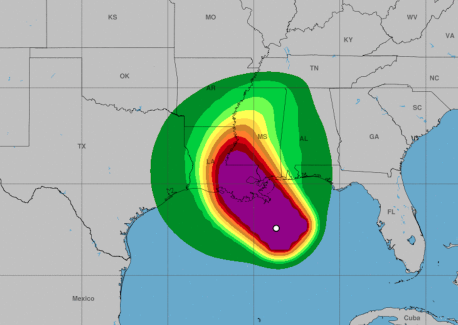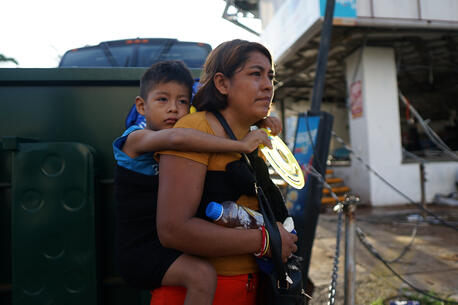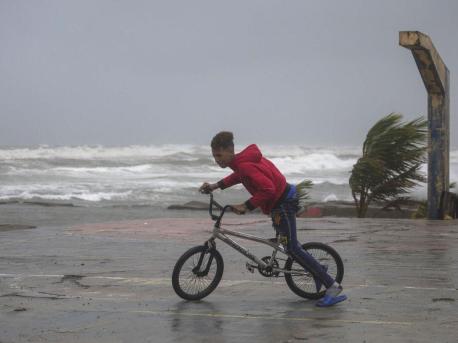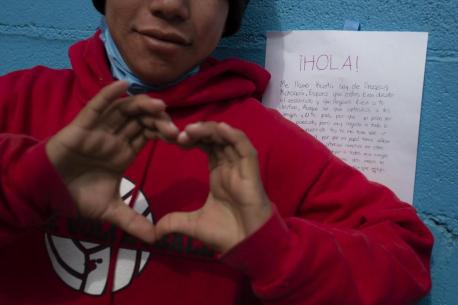
UNICEF USA & Partners Ready to Protect Children From Hurricane Ida
UNICEF USA is coordinating emergency response measures with Church World Service and a network of partners on the ground in the wake of Hurricane Ida.
Hurricane Ida made landfall near Port Fourchon, Louisiana on Sunday, Aug. 29, the 16th anniversary of Hurricane Katrina, inundating coastal communities and pushing inland with torrential rains and flooding. As the remnants of the storm continue to thrash the region, UNICEF USA is working to assess needs and coordinate emergency response efforts with Church World Service and a network of partners on the ground.
The hurricane intensified rapidly after striking Cuba on Friday Aug. 27, battering Louisiana with maximum sustained winds of 150 miles per hour. Louisiana Governor John Bel Edwards declared a state of emergency. Roads were blocked; water and sanitation services disrupted. Nearly 1 million people were left without power, including the entire city of New Orleans.
⚠️Heavy rain from Ida has begun to impact the southeast LA coast this morning, with precipitation expanding across southeast LA and coastal/southern MS today into tonight (storm total: 10-18", iso. 24") resulting in life-threatening flash flooding and significant river flooding. pic.twitter.com/M9zmpIntNZ
— NWS Weather Prediction Center (@NWSWPC) August 29, 2021
In a crisis, children often suffer first, and suffer most. UNICEF responds to nearly 300 emergencies a year, working with governments and other partners to mobilize a rapid and efficient response when disaster strikes.
UNICEF is committed to reaching the most vulnerable children and families wherever they are, operating in difficult conditions and hard-to-reach places. You can help. In the event that donations exceed needs for Hurricane Ida, excess funds will go towards supporting UNICEF’s emergency preparedness and response efforts where needed the most.
Top photo: Hurricane Ida nears the Louisiana coast on Sunday, Aug. 29, 2021, bringing torrential rains and sustained winds up to 150 miles per hour. Nearly 1 million people in Louisiana lost power in the storm. © NOAA National Hurricane Center
HOW TO HELP
There are many ways to make a difference
War, famine, poverty, natural disasters — threats to the world's children keep coming. But UNICEF won't stop working to keep children healthy and safe.
UNICEF works in over 190 countries and territories — more places than any other children's organization. UNICEF has the world's largest humanitarian warehouse and, when disaster strikes, can get supplies almost anywhere within 72 hours. Constantly innovating, always advocating for a better world for children, UNICEF works to ensure that every child can grow up healthy, educated, protected and respected.
Would you like to help give all children the opportunity to reach their full potential? There are many ways to get involved.





